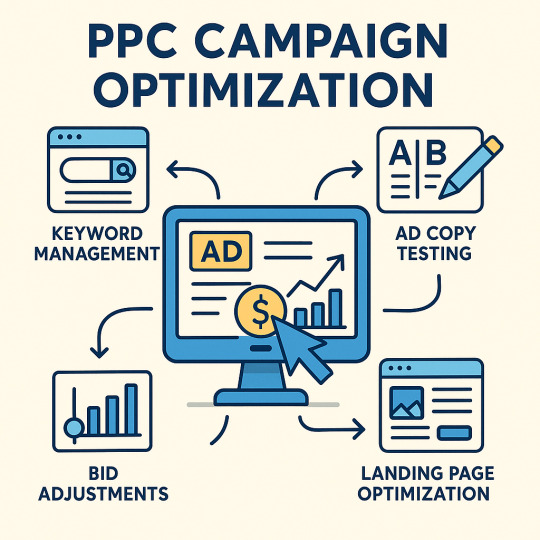Don't wanna be here? Send us removal request.
Text

How to Make Free PayPal Money Instantly
1 note
·
View note
Text

An affiliate program is a digital marketing agreement by which a company compensates people (affiliates) for sending traffic, leads, or sales to the firm's products or services using the affiliate's special tracking links.
How It Works Join the Program: You become an affiliate on a firm's affiliate platform.
Get Your Unique Link: You get a specific URL with a tracking code.
Promote the Product: You share this link on blogs, social media, YouTube, etc.
Earn Commission: When someone clicks your link and buys (or reaches a goal like signing up), you get a commission.
0 notes
Text

A landing page is an independent website page developed for a specific campaign for advertising or marketing. It's where a user "lands" when they click on a link in an ad, email, or other online channel. The purpose of a landing page is to convert visitors into customers or leads via a dedicated Call-To-Action (CTA) such as signing up, downloading, or buying.
Primary Features: Focused Content: A single product, service, or promotion.
Clear CTA: Buttons such as "Buy Now", "Sign Up", or "Get Started".
No Distractions: In contrast to a homepage, it shuns menus or links that divert visitors away.
Conversion Tracking: It's designed for tracking and optimizing results.
0 notes
Text

PPC campaign optimization is an ongoing practice of enhancing the performance and return on investment (ROI) of a PPC advertising campaign (such as Google Ads, Bing Ads, or social media advertising). The aim is to achieve the best possible outcome—most clicks, conversions, or sales—while avoiding wasteful spend.
What It Entails: Keyword Management: Keyword list optimization, including adding high-performance keywords and removing low-performance or irrelevant ones.
Ad Copy Testing: A/B testing of headlines, descriptions, and CTAs to enhance click-through rates (CTR).
Bid Adjustments: Adjusting bids by device, location, time of day, or audience performance.
Targeting Refinement: Targeting refinement to narrow or widen audience targeting to connect with the most relevant users.
Landing Page Optimization: Helping users land on relevant, speedy, and conversion-oriented pages.
Negative Keywords: Including terms that do not need to activate ads to minimize irrelevant clicks.
Conversion Tracking: Tracking with tools such as Google Analytics to see what users do after clicking.
Why It's Important: Maximizes ROI: Maximizes how your ad budget is spent by concentrating on what is effective.
Improves Quality Score: Improved quality scores decrease CPC (cost-per-click) and enhance ad placement.
Boosts Conversions: Generates more leads, signups, or sales by reaching the right audience with the right message.
Saves Wasted Spend: Avoids low-performing keywords, ads, or audiences that swallow your money.
Competitive Edge: Keeps your campaigns in front of the competition that isn't optimizing.
0 notes
Text
Social Media Marketing..
Social media marketing (SMM) refers to the process of promoting products, services, or brands using social media platforms and communicating with an audience. It entails producing and posting content specifically for certain platforms such as Facebook, Instagram, X (Twitter), LinkedIn, TikTok, and more, with the aim of attaining marketing and branding goals.
How It Works: Platform Selection: Companies select platforms where their target group is most active.
Content Creation: Posts, images, videos, stories, and others aiming to inform, entertain, or engage the audience.
Audience Engagement: The marketer engages with the users by liking, commenting, sharing, sending direct messages, and replying, creating a community and engaging in loyalty.
Paid Advertising: Highly targetable advertisement options are available on most platforms to reach an audience based on interests, behavior, location, and so on.
Analytics and Optimization: Performance is monitored through means such as Meta Insights or Google Analytics. Marketers modify strategy according to what works best for what content and campaigns.
Influencer Collaboration: Brands frequently collaborate with influencers in order to target wider or more specialized audiences.
Social Media Marketing Goals: Boost brand awareness
Create leads and sales
Enhance customer engagement and loyalty
Drive traffic to a website
Get customer insights through data
1 note
·
View note